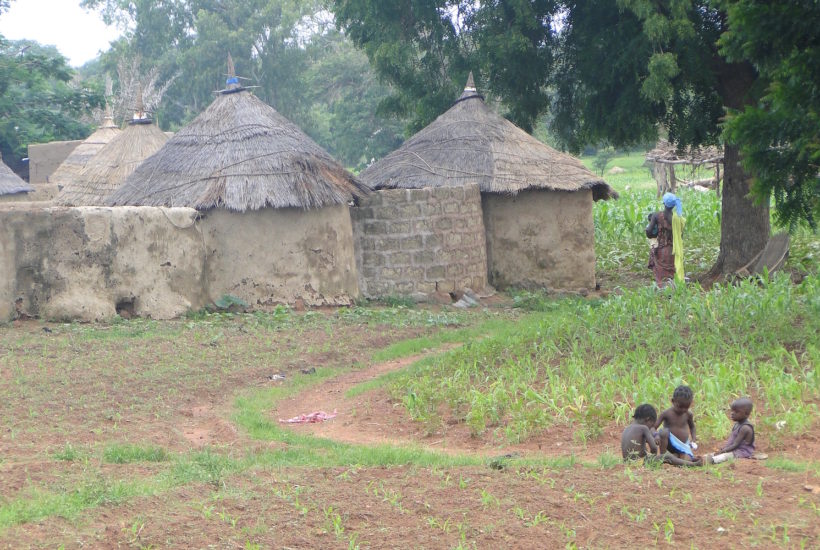Africa
Burkina Faso provinces to face financial losses of 11% to 30%
The results of the study conducted in the communes of Burkina Faso showed that Ouagadougou could experience a loss of $12.3 million (CFAF 7.5 billion) in revenue, Ouahigouya could experience a deterioration of its resources in the order of $160,000 (CFAF 96.8 million) and Malba, a loss estimated at $4,000 (CFAF 2,474,000). The losses in own resources are estimated at between 11% and 30%.

At a time when the loss of public resources of Burkina Faso is estimated at $505 million (CFAF 306 billion) due to the management of COVID-19, that of the territorial authorities is estimated at $57.5 million (CFAF 34.75 billion) in terms of financial support from the State. That is what emerges from the analysis of the repercussions of COVID-19 on local budgets carried out by the Center for Information, Training, and Studies on the Budget (CIFOEB).
The results of the study conducted in the communes of Ouagadougou, Ouahigouya and Malba (Poni province, South-West region), were delivered this Tuesday, May 12th, 2020, during a press conference.
If you want to find more about the financial situation of the provinces in Burkina Faso and to read the most important economic news in the world, download the Born2Invest mobile app.
The CIFOEB study to identify the impact of the measures to halt the pandemic
By conducting this study on a sample of three communes, namely Ouagadougou (special status commune), Ouahigouya (urban commune) and Malba (rural commune), the CIFOEB team, according to the Executive Director, Youssouf Ouattara, intended to identify the impact of response measures and support to households and enterprises on the budgets of local authorities. This will be done by focusing on the categories of revenue affected by the response measures on the basis of 2020 budget data.
The analysis showed that a commune such as Ouagadougou could experience a loss of $12.3 million (CFAF 7.5 billion) in revenue, Ouahigouya could experience a deterioration of its resources in the order of $160,000 (CFAF 96.8 million) and Malba, a loss estimated at $4,000 (CFAF 2,474,000). The losses in own resources for the three communes of Ouagadougou, Ouahigouya and Malba are estimated at between 11% and 30% for all the local authorities in Burkina. These losses are linked to the decline in the contribution of patents, the contribution of micro-enterprises, property rental costs, the cost of land rights and the cost of renting land and shops.
For a rational management of State resources
As strategies for resilience, CIFOEB suggested that municipalities should rely on sources of income that are less dependent on social and fiscal measures. In this regard, Youssouf Ouattara cited, among others, the slaughter tax (communes with slaughterhouses or slaughter areas), area taxes (communes with mines), taxes on aggregate removal (communes with sand used for the construction of mines), and civil registry fees as resilient resources that could be a source of oxygen for local authorities.
Better still, CIFOEB recommended a reduction in the lifestyle of the communes by substantially trimming the resources earmarked for session costs, internal and external mission expenses, fuel costs, etc. In the same vein, the organization, which is committed to the fight for good economic and financial governance and the realization of social rights, suggested a reduction in the State’s standard of living. That in order to maintain the transfer amounts planned for the benefit of local authorities, which will be heavily affected by the response measures.
“What is expected from our leaders, and all those in charge of managing public resources, is rigor in the use of resources. With the crisis, there are no more missions and this proves that we can do the work of the administration in a different way, by reducing operating costs. It is in this sense that we have to go so that when crises of this kind occur, we can deal with them,” Youssouf Ouattara said. CIFOEB also advocates transparent management of the resources mobilized for the fight against the pandemic by setting up a management mechanism involving state and non-state actors.
The recommendations made to the State also included the operationalization of the Mining Fund for Local Development (FMDL). Indeed, noting that the sector has been relatively spared by the health crisis, the Executive Director of CIFOEB believes that full operationalization will enable communes to cope with the crisis.
“The texts are there, some companies are making their contributions within the framework of the mining fund. The others that don’t, this is an opportunity to do so because at least that is a secure resource for the communes. Even if they are going to lose in terms of patenting, if they have a secure resource under this fund, it can allow them to bounce back and be more resilient,” commented CIFOEB’s executive director. As a reminder, underlines Youssouf Ouattara, the remains to be recovered between 2017 and 2019 amounted to nearly $62.1 million (37.6 billion FCFA).
__
(Featured image by Adam Jones via Wikicommons)
DISCLAIMER: This article was written by a third party contributor and does not reflect the opinion of Born2Invest, its management, staff or its associates. Please review our disclaimer for more information.
This article may include forward-looking statements. These forward-looking statements generally are identified by the words “believe,” “project,” “estimate,” “become,” “plan,” “will,” and similar expressions. These forward-looking statements involve known and unknown risks as well as uncertainties, including those discussed in the following cautionary statements and elsewhere in this article and on this site. Although the Company may believe that its expectations are based on reasonable assumptions, the actual results that the Company may achieve may differ materially from any forward-looking statements, which reflect the opinions of the management of the Company only as of the date hereof. Additionally, please make sure to read these important disclosures.
First published in lefaso.net, a third-party contributor translated and adapted the article from the original. In case of discrepancy, the original will prevail.
Although we made reasonable efforts to provide accurate translations, some parts may be incorrect. Born2Invest assumes no responsibility for errors, omissions or ambiguities in the translations provided on this website. Any person or entity relying on translated content does so at their own risk. Born2Invest is not responsible for losses caused by such reliance on the accuracy or reliability of translated information. If you wish to report an error or inaccuracy in the translation, we encourage you to contact us.

-

 Markets4 days ago
Markets4 days agoStock Markets Surge Amid Global Uncertainty, But Storm Clouds Loom
-

 Cannabis2 weeks ago
Cannabis2 weeks agoAurora Cannabis Beats Expectations but Faces Short-Term Challenges
-

 Africa15 hours ago
Africa15 hours agoMorocco Charts a Citizen-Centered Path for Ethical and Inclusive AI
-

 Crowdfunding1 week ago
Crowdfunding1 week agoSavwa Wins Global Design Awards and Launches Water-Saving Carafe on Kickstarter
























